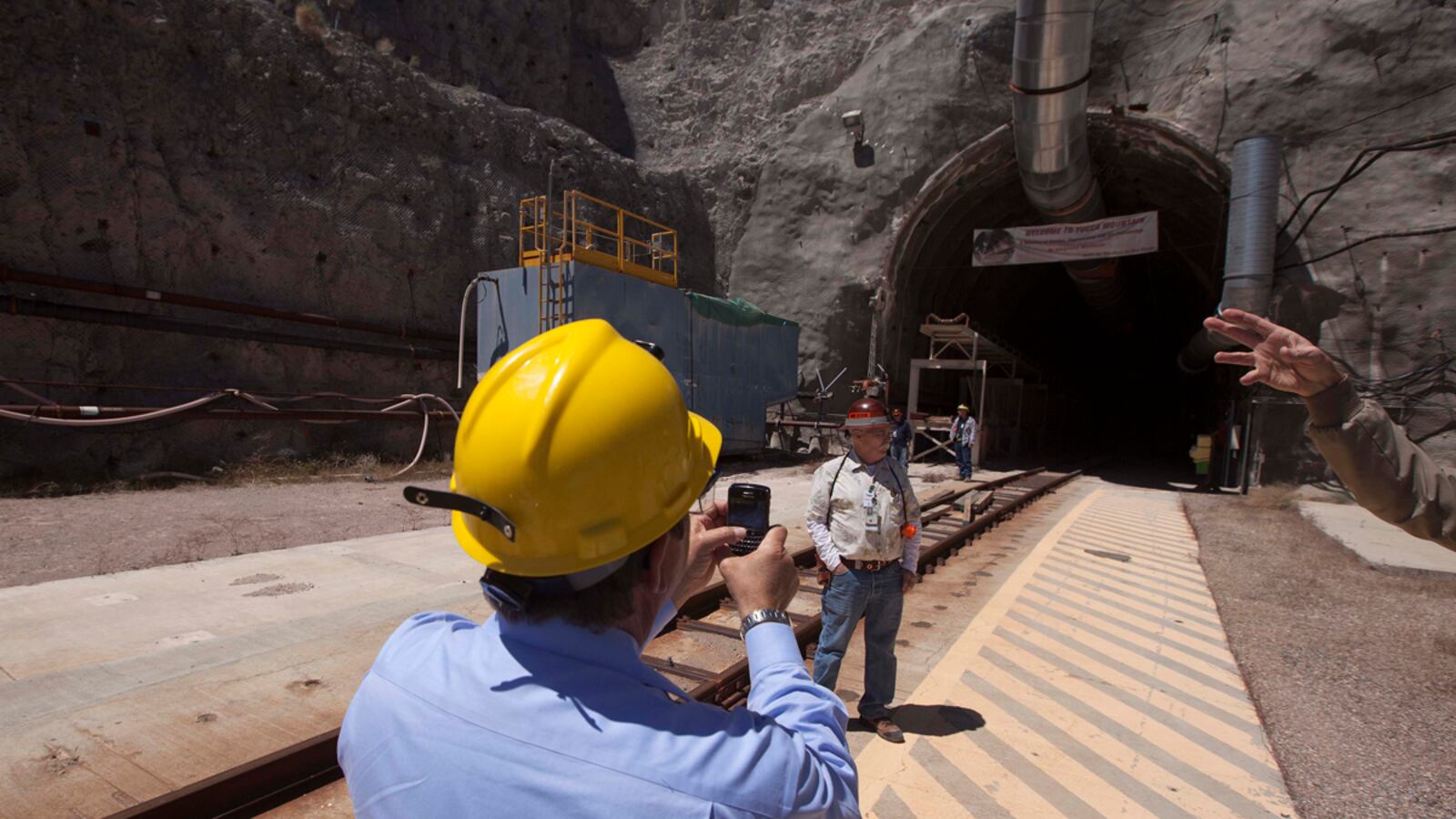Yucca Mountain, long touted as the answer to the nation’s nuclear waste problem, was canceled by the Obama administration in 2009. But now the country’s leading group of nuclear scientists and engineers is demanding that the proposed storage facility be given another look.
In a strongly worded letter obtained exclusively by The Daily Beast, Eric Loewen, president of the American Nuclear Society, this week urged the Nuclear Regulatory Commission to complete the agency’s mandated review of the Yucca site that it started four years ago. Earlier this year, Obama’s latest budget zeroed out its future, effectively leaving the site, about 100 miles northwest of Las Vegas, for dead.
“I write to express our deep concern about the U.S. Nuclear Regulatory Commission’s inability to complete consideration of the Yucca Mountain license application in a scientifically objective and technically meritorious manner,” Loewen told NRC Chairman Greg Jaczko. “I urge you to perform your duties mandated by the Nuclear Waste Policy Act and complete the Yucca Mountain licensing process.”
The Department of Energy had studied Yucca since the late ’70s before handing it off to the NRC in 2008. When the funding from Washington dried up, NRC inspectors halted their review of the full site and its functionality, essentially ending the process half-finished. Top ANS officials, many of them former industry leaders and academics, argue that the licensing process should be finished regardless of the project’s prospect of actually operating. In July, the D.C. Circuit Court of Appeals agreed.
The decision to shutter Yucca has long been considered political in nature, ordered by President Obama under substantial pressure from Senate Majority Leader Harry Reid, who is from Nevada. Concern about whether the geologic endurance of the site can house spent nuclear fuel that stays radioactive for more than 10,000 years has galvanized public opinion in Nevada against the Yucca repository, despite the hefty revenue it would bring the economically beleaguered state.

But its geologic qualities—it’s far from urban centers in a desert that experiences very few disasters like floods and earthquakes—has made it America’s most attractive repository site, and perhaps too valuable to forgo without a full investigation of its suitability.
“We try to stay out of the politics and argue from a technical standpoint, but we’re just so frustrated as a technical community we want to come off the sidelines,” Loewen told The Daily Beast. “Many of our members invested their careers in this.”
All five commissioners, including Jaczko, declined to discuss the letter and the commission’s stalled progress on Yucca. But some have taken public stances against Jaczko’s decision to halt the project. William Ostendorff, who sits on the commission until 2016, told Congress last fall that he agreed the agency still had an obligation to investigate Yucca and other potential repository sites.
The debate plays out as the problem of nuclear waste mounts. Each year America’s 104 nuclear plants produce about 18,000 tons of spent radioactive fuel consisting of uranium and plutonium, both byproducts of nuclear fission. The current stockpile of U.S. waste is estimated to be about 60,000 tons, all kept on-site at each individual power station, where authorities feel they could be a target for terrorist attacks.
With Yucca off the table, a blue ribbon commission in late July urged Congress to get serious about finding a new site, funding its development and considering the mounting costs of delay. It was a long-term challenge, the panel said, that spans many generations and requires willingness to make difficult decisions.
In Washington, a city lately consumed by talk of budgets and spending cuts, the most illuminating point may Yucca’s price tag. Research thus far on Yucca has cost $9 billion. Abandoning the project now, ANS officials note, would make all that spending a colossal waste.





